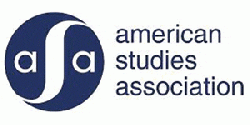Washington D.C. — The American Studies Association (ASA) National Council made a unanimous decision for an academic boycott of Israel, after a heavily debated meeting on Wednesday, December 4.
The ASA is the nation’s oldest and largest association devoted to the interdisciplinary study of American culture and history. Chartered in 1951, the ASA now has 5,000 individual members along with 2,200 library and other institutional subscribers.
The vast majority of speakers at a ASA forum, regarding the academic boycott resolution, last month, were in favor of the call. The organization is now likely to follow suit.

The ASA resolution had been four years in the making, spearheaded by dozens of activist-scholars. Overwhelming support for the resolution was evident by the hundreds of signatures collected on a petition directing the council to honor the boycott as well.
The resolution will now be put up for an online vote by ASA members on December 15. It’s likely to pass, given the prevailing sentiment at the conference. However, if the majority of voters do not endorse the decision, the ASA will “withdraw the resolution and determine next steps.”
“The Council voted for an academic boycott of Israeli institutions as an ethical stance, a form of material and symbolic action. It represents a principle of solidarity with scholars and students deprived of their academic freedom and an aspiration to enlarge that freedom for all, including Palestinians,” a statement on the ASA website reads.
The news was lauded by the Academic and Community Activism Caucus, the group of scholars that brought the resolution to the ASA.

The resolution states that Palestinian students and scholars have their movement severely restricted by Israel’s occupation, infringing on their ability to attend and work at schools and travel abroad for conferences. It also criticizes Israeli universities for being complicit in Israel’s denial of Palestinian human rights.
“The American Studies Association endorses and will honor the call of Palestinian civil society for a boycott of Israeli academic institutions,” the resolution reads. ”The ASA supports the protected rights of students and scholars everywhere to engage in research and public speaking about Israel-Palestine and in support of the boycott, divestment and sanctions (BDS) movement.”
ASA President Curtis Marez said in a statement, “The boycott is the best way to protect and expand academic freedom and access to education. Palestinian academics are frequently impeded by Israeli occupation authorities, schools and universities have been bombed by US-supported Israeli military forces, and the Wall blocks educational access for thousands of students. As an association of scholars and educators, the ASA has an ethical responsibility to act.”
But the ASA’s latest move did not come without some resentment. Boycott opponents, speaking previously at an open meeting, had called to discuss the resolution during ASA’s annual conference, where 2,000 members had been attendance, recommending a body-wide poll. Such a poll is unusual, and boycott proponents strongly opposed it.
According to the Frequently Asked Question page posted on the ASA website, the boycott will not inhibit collaboration with individual Israeli academics.
“The ASA understands boycott as limited to a refusal on the part of the ASA in its official capacities to enter into formal collaborations with Israeli academic institutions, or with scholars who are expressly serving as representatives or ambassadors of those institutions (such as deans, rectors, presidents and others), or on behalf of the Israeli government, until Israel ceases to violate human rights and international law,” the FAQ said.
The ASA endorsement is sure to dismay supporters of Israel, who have expressed worry that academic boycott was becoming more popular.






Leave a Reply